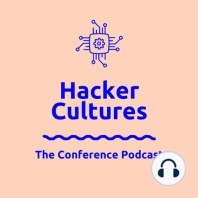19 min listen

Episode 2 (2022) Cansu Güner - Hack the house! Reconfiguring domesticity in co-living spaces
Episode 2 (2022) Cansu Güner - Hack the house! Reconfiguring domesticity in co-living spaces
ratings:
Length:
19 minutes
Released:
Oct 4, 2022
Format:
Podcast episode
Description
This episode is with Doctoral Candidate Cansu Güner from School of Social Sciences and Technology at Technical University of Münich.This podcast is about hacking houses. Entrepreneurs with engineering backgrounds who live in co-living spaces tend to hack their houses either as part of a hackathon or via self-initiated hacking practices. Drawing from a one-year-long ethnography on hacking practices in co-living spaces in the Bay Area and Munich, I aim to answer the following questions: what would happen if the subjects of domestic work would also be equipped with the technological know-how and expertise that would potentially reconfigure the domestic ideology? Would then they position domesticity as their domain of innovation and intervention? What kind of domestic ideal would they have? What kind of technological interventions would they make or not make?Specifically, I would like to compare two home automation systems, namely the Weekly Task Planner (WTP) and the Hidden Camera, which had been created as a result of hacking practices in co-living spaces. In Munich, the WTP was created to help residents to keep track of predefined domestic tasks, e. g., cleaning, by automatically assigning them to people every week. In the Bay Area, one of the residents hacked the problem of dirty dishes by installing a hidden camera in the kitchen to surveil and shame the irresponsible residents who fail to fulfill their chores not for accustomed reasons such as safety and security purposes.Drawing on feminist STS (Schwartz-Cowan 1976; Cockburn 1997; Naulin and Jourdain, 2020; Fraiman 2017; Kleif and Faulkner, 2003; Suchmann 2007), I would like to shed light on how hackathons and hacking practices have been utilized as ways of remaking domestic culture(s). I argue that co-living as a technosocial project is subjected to the entreprenurialization of domesticity in which the domestic activities become dominated by entrepreneurial ambitions like hacking. Situational analysis, in-depth interviews, and ethnography are employed as the main methods.This episode is a live recording from Hacking Everything. The Cultures and Politics of Hackers and Software Workers panel organized at the European Association for the study of Science and Technology (EASST) 2022 conference in Madrid on 2022-07-07. The hosts are Paula Bialski, Andreas Bischof and Mace Ojala. Audio production by Heights Beats at Hotmilk Records, who also produced the theme track. We are grateful for Chemnitz University of Technology for funding.
Released:
Oct 4, 2022
Format:
Podcast episode
Titles in the series (16)
Episode 1 (2020): Morgan G. Ames - Throwback Culture: The Role of Nostalgia in Hacker Worlds by Hacker Cultures: The Conference Podcast